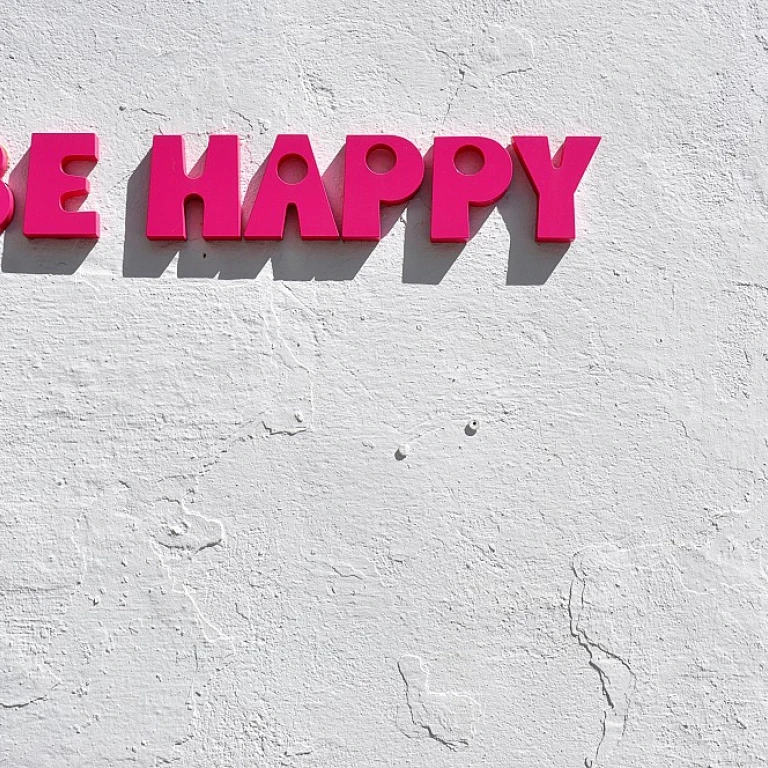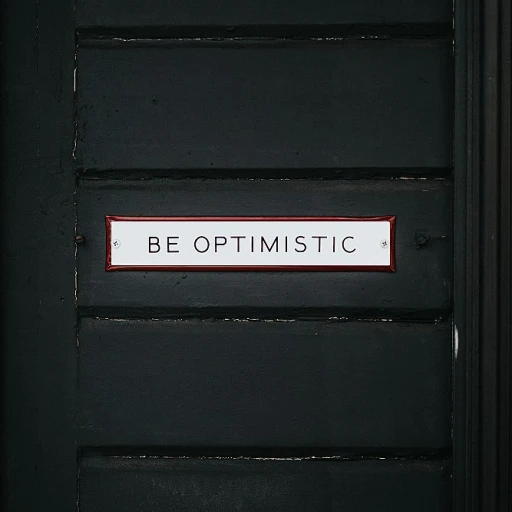Perfecting Your Approach: Strategies for Job Interview Preparation
Tailoring Your Interview Game Plan
When it comes to nailing that job interview, the devil is in the details. Crafting a methodical approach to your interview preparation isn't just about researching the company or rehearsing answers; it's about aligning your skills and experiences with the needs of the role. What's more, it's imperative to understand the interplay of knowledge, skills, and abilities when conveying your qualifications. Recall those stats by Zety revealing that 93% of employers deem soft skills essential – stressing the significance of not just what you know, but how you apply it.
Understanding the Hiring Manager's Needs
Let's not forget: the person on the other side of the table is seeking the ideal fit for their team. Hiring managers are like puzzle masters, looking for the piece that fits just right. LinkedIn's Global Talent Trends report highlights that nearly 89% of bad hires lack critical soft skills – proving that it's not solely about 'can you do the job?' but 'will you do it well?' in this collective web of work.
Customizing Your Story
Savvy job seekers use their previous achievements as narratives to illustrate their problem-solving prowess and ability to enhance team dynamics. As per Interview Research findings, candidates who relate tales of past triumphs ramp up their chances of making a memorable impression. Whether it's about that time you spearheaded a critical project or instances of adaptability showcasing a symbiosis with the prospective work style, these stories are your spearheads in the battle for the role.
Anticipating the Questions
Interviews are a two-way street, where both parties vet compatibility. Anticipate questions by understanding the core competencies the job demands. Reflect on queries around problem-solving skills, which according to a study reported by the American Management Association, is one of the top skills needed in today's workforce. And remember, tailoring responses to address the company's immediate needs shows that you're not only well-prepared but also highly insightful about job performance in the specific role offered.
Preparation Beyond the Resume
As we encapsulate these strategies, let's ponder on a pertinent Harvard Business Review analysis which punctuates the influence of thorough prep beyond the resume. Prepping question responses is a given, but rehearsing the art of conversation – a dance between interview questions and answers – and aligning these with your career objectives can mark the genesis of a rewarding professional journey at this new company. Speaking of journeys and finding the right balance, amidst both personal and professional realms, mastering the art of harmonizing work and family life is critical, something that you can explore in depth at this insightful resource.
Becoming the Candidate of Choice
In the end, job interview success hinges on well-crafted preparation, understanding the interviewer's vantage point, and aligning oneself with the trajectory of the company. Conveying how your evolution and aspirations resonate with the organization's ethos could significantly tilt the odds in your favor. It's the delicate dance of perspicacity and personal branding that makes one the candidate of choice.
First Impressions Count: The Interviewer's Perspective
Understanding the Interviewer's Mindset and Making a Lasting Impression
Stepping into a job interview, it's crucial to grasp that the person across from you holds not just a list of questions but the keys to your next career move. This isn't just about ticking boxes. It's an intricate dance, with each step from attire to that initial handshake setting the tone. Time and again, hiring managers nod to the importance of authentic engagement over rehearsed responses. So what's on their mind?
Framing Responses to Reflect Interviewer Goals
The questions posed during an interview often mirror the interviewer's primary objectives – which, in essence, revolve around assessing three core areas: competence, culture fit, and potential contribution. Google's former SVP of People Operations, Laszlo Bock, suggests in his book Work Rules! that finding the right person is a nuanced blend of these factors. When you answer interview questions, think problem-solving skills that can boost job performance, knowledge that aligns with team values, and abilities that elevate work style to match the job's demands.
Deciphering the Subtext Behind the Questions
Interviewers often employ behavioral interview questions to predict future performance based on past behavior. Classic examples include "Describe a time when you demonstrated leadership" or "Can you discuss a moment when you had to solve a tough problem?" These are windows into your work style and problem-solving capabilities. To not just answer questions but to answer interview questions well, anchor your response in concrete achievements that resonate with your audience.
Projecting Confidence Through Non-Verbal Cues
Ironically, what you don’t say can weigh as much as your verbal responses. Research published in the Journal of Applied Psychology corroborates the role non-verbal cues play in interviewer assessments. Body language that exudes confidence and openness can shape the interviewer's perception before you even articulate your fit for the role.
Navigating Common and Uncommon Ground
Common interview questions aside, every so often a curveball – something like situational interview questions – makes its way into the conversation. This is where your research on the company culture and work environment pays dividends. Showing that you've read the job description thoroughly and can tailor your experience to this specific role is key.
In understanding the interview process from the other side of the table, your job isn't to simply deliver answers. It's to foster a connection, to co-create a narrative of mutual benefit. And while your interviewers question your past, they're really looking to the future – a potential where you bring value to the team, mesh with the company culture, and thrive in the type of work environment they envision.
For more insights into effectively tailoring your skills and experiences to your desired role, don't miss out on our focused exploration at Elevating Workforce Expertise: The Imperative of Continuous Learning.
Interpreting the Interviewer's Questions: A Deeper Look
The Translator Role of Your Responses
When sitting across from the interviewer, every question asked is an opportunity to translate your experience and skills into the language of the company's needs. Think of it like this: the interviewer has a map full of various routes, and they are looking for the path that leads straight to success - your job is to show that your career track runs parallel to those coordinates. So, how do you interpret their roadmap through their questions? Imagine, they ask, “Describe a time when you showed leadership.” Statistically speaking, leadership is among the top attributes employers seek, with 83% of organizations saying it's a decisive factor in hiring, according to the National Association of Colleges and Employers. Here, your answer should not just reflect a past incident but also demonstrate how your leadership style aligns with their organizational culture and team dynamics.
Problem-Solving as a Spotlight Skill
A real clincher in an interview can be the 'problem-solving' question, often coming in a variety of forms. Google might ask how you would tackle reducing the time it takes to sort a billion numbers. LinkedIn, in its pursuit of connecting professionals, might inquire about how you've leveraged your network to solve a workplace issue. The key is in the approach: detail your process, not just the outcome. According to experts such as Laszlo Bock, former SVP of People Operations at Google, this reveals the intricacy of your problem-solving skills far more than a successful end result does. It's not about the problem itself, but how you unravel it thread by thread that showcases your analytical acumen and decision-making prowess.
Understanding the Subtext Behind the Questions
Reading between the lines is paramount. When the hiring manager asks, “What type of work environment do you prefer?” they're not just making idle chit-chat. What they're fishing for is whether you'd blossom or wither in their company's soil. Your response should touch upon your adaptability and how you thrive in environments like the one on offer. The Harvard Business Review notes that mutual fit is critical for job performance, giving both the individual and the organization the best chance at achieving their respective goals.
Behavioral Interview Questions: The Window into Your Work Ethic
Enticing as it might be to anticipate common interview questions and prepare a stock answer, it’s the behavioral questions that truly let the interviewer peer into your work world. Diving into situations like, “Describe a time you made a significant mistake and the lessons you learned,” offers a platform to illustrate your capacity for growth and self-awareness - qualities that books like Daniel Goleman’s Emotional Intelligence pinpoint as cornerstones of professional success. Hiring managers approach these questions as if they're puzzle pieces, looking to fit them within the larger picture of their team and company ethos.
Wrapping everything together, when interviewers probe with their pointed questions, they are painting a scenario where your past experiences color the canvas of the company’s future. Artsy narratives aside, reports like Gallup's State of the American Workplace demonstrate that a well-matched employee is more likely to contribute to a positive work culture, translating into higher job performance. Sifting through the nuances of an interviewer's question not only elevates your chances of a successful interview but also reflects an in-depth understanding of the company's heartbeat, which might just gain you that extra edge. For those navigating the complexities of job interviews, understanding the underlying themes behind interview questions can be akin to deciphering a cryptic code. A deeper exploration into these strategies can be found within this insightful resource. It’s where the operational merges with the strategic, ensuring that your interview performance is not only stellar but also finely tuned to the rhythmic pulse of your potential future workplace.
The Narrative of Skills: How to Showcase Your Professional Assets
Turning Talents into Talking Points
Conveying your professional worth in an interview is an art; it's about translating your skills and experiences into compelling stories that resonate with the interviewer. The narrative of your abilities isn't about listing accomplishments; it's about the relevance of these achievements to the potential role. For example, suppose you're a graphic designer. In that case, an interviewer might be more impressed to hear about a specific time your innovative design directly influenced a successful marketing campaign, complete with data-driven results, rather than just a rundown of your Photoshop skills.
Quantifying Your Impact
Metrics speak volumes. Let's say you improved productivity at your last job. That's a strong start, but it's the 'by how much' that can turn heads. Quantify your contributions with exact figures where possible. As studied by LinkedIn, candidates who can articulate their achievements with numbers are perceived as more credible. Credibility is key, and giving concrete numbers (% increase in sales, the dollar amount saved, etc.) can make your narrative much more convincing.
Contextualizing Experience with STAR
The STAR approach, which stands for Situation, Task, Action, and Result, is an invaluable tool in interview storytelling. This technique offers a structured way to articulate your past successes in a manner that's both clear and memorable. Google's hiring managers, for instance, often look for this level of structured communication. When asked about problem-solving skills, recount an instance using the STAR format to demonstrate clearly how your approach to a challenge directly led to a positive outcome.
The Color of Your Character
Behavioral interview questions are common, and they're your chance to paint a vivid picture of how your skills have been tested and proven. Discussing your conflict-resolution abilities? Remember to reflect on a real scenario, perhaps when you helped to restore team harmony during a project that hit roadblocks. Employers, especially those emphasizing a collaborative work environment, favor candidates who not only solve problems but who also exhibit emotional intelligence while doing so.
Customizing Your Skill Set
No two companies are the same, and neither should your interview responses be. Tailor your skill narrative in alignment with the company's core values and culture. If you've done your homework — perhaps you've read up on the desired knowledge, skills, and abilities listed in the job description — you'll be able to align your examples perfectly. This customization shows the hiring manager that you're not just looking for any job, but you're interested in this job, in becoming a part of their team.
Lean on the research highlighted in the interview research phase to align your skillset with what the company is seeking. Knowing what a good fit looks like, from the inside out, can make your story resonate even more deeply.
Cultivating Team Synergy: Discussing Role and Team Fit
Revealing the Heartbeat of Teamwork During Interviews
When you step into an interview, it's not just about proving you can do the job; it's also about demonstrating how you'd blend with the company's heartbeat – its team. Interviewers often aim to gauge your ability to synergize with their team through tailored questions that go beyond your resume. It's your chance to showcase not just your compatibility with the role but also your potential to be a harmonious team member.
Decoding the Synergy Question
Expect queries like, 'How do you handle team conflict?' or 'Can you describe a time when you collaborated to solve a problem?' These aren't just questions; they're your stepping-stones to illustrating your team-playing ethos. Reflect on specific examples where you were the ensemble's unsung hero or perhaps where your chorus helped achieve success. These narratives present you as more than an individual contributor but a catalyst for collective triumph.
Painting a Picture of Your Team-persona
Responses like 'I thrive in teams where ideas are shared freely' or discussing a time when you aided a struggling team member can strike the right chord with potential employers. Flip through the pages of your career scrapbook and pinpoint moments that best exemplify your team spirit and dialect. Your anecdotes should not only resonate with the interviewer but also show clarity about the type of work environment you prefer, be it a jazz band's jam session or a well-oiled assembly line.
The Subtext of Social Harmony
Understanding the undercurrents of a team's dynamic can be as crucial as your skill set. Addressing this subtly can be a win; whether it's emphasizing how your work style aids team cohesion or your proactive approach to filling gaps within a team. In your arsenal of experiences, equip yourself with instances showcasing your adaptability. After all, a smooth sea never made for a skilled sailor, and interviewers look for those who can navigate all tidal waves.
A Culture Fit or a Cultural Add?
Engage with the interviewer about your values and see if they echo within the organization's culture. It's a dance between being a culture fit and a cultural add. Use the moment to enquire about the team's approach and share how your unique rhythm could complement it. From celebrating diversity in thought to your way of embedding work-life balance into your beat, your answers should offer a glimpse of how you'd not just fit but enrich the company's tapestry.
Reading Between the Lines
Listen carefully to what's unsaid during interviews. The interviewer's question may appear straightforward, yet it's often laced with layers seeking insights into your people skills. Reflect on the job description and echo keywords that resonate with the role's social intricacies. Whether it's team member or orchestra conductor, your language should articulate your readability of the unspoken symphony in teamwork.
Stress Management: Navigating Problem-Solving Interview Questions
Cracking the Code to Problem-Solving Interview Questions
You've navigated through the treacherous waters of common interview questions, offered insights into your work style, and even talked about how your skills match the job description. But now, you're sitting across from the hiring manager and they've just posed a scenario that seems like a Rubik's Cube waiting to be solved. This is the moment where your problem-solving skills are on full display, and it's crucial to leverage this opportunity.
Dissecting the Question to Find the Answer
Every problem-solving question is a window into your thought process, and interviewers question with intent. They're not just interested in the 'correct' answer, but they're keen to understand how you approach a complex situation. Do you start by defining the problem, or do you jump straight into solution mode? Perhaps you're the type that weighs all possible options or seeks additional information before making a decision. Whatever your approach, make it transparent to your interviewer. Remember, transparency can speak volumes about your compatibility with a prospective team member's way of thinking.
Employing Real-World Examples to Illustrate Capability
Talk is cheap if it's not backed by action. When discussing your problem-solving skills, a case study from your professional experience can speak volumes. Describing a time when you faced a challenging work situation, how you assessed the variables involved, and how you overcame it can reveal more about your capabilities than any theoretical answer ever would. Details matter, so narrate the example with precision, ensuring your role and the positive outcomes are clear.
The Power of Reflection in Problem-Solving
It's not just about how you've solved problems in the past – it's also about what you learned from those experiences. Reflecting on a time you made a mistake and what you gleaned from it shows immense growth. Share an instance where you had to answer for a time a mistake turned into a learning opportunity, and how that has refined your problem-solving abilities over time.
Problem-Solving as a Mirror to Company Culture
Interviews are a two-way street. While you're assessed for job fit, you're also gauging company culture. A company's approach to problem-solving can be indicative of its work environment. Whether they prefer an individualistic approach or collaborative problem solving can affect how well you'll mesh with the company and whether the type of work environment they offer will allow you to thrive.
Conclusion: Your Strategy is the Key
As we've unwrapped throughout this discussion, problem-solving is more than finding solutions – it's a dance that involves agility, creativity, and compatibility. Your strategy to answer interview questions can align closely with the interview process itself, serving as a platform to exhibit your readiness to tackle real-world challenges. Whether it's through studies that highlight a link between problem-solving skills and job performance, or through tips provided by experts and hiring managers, the data is clear: a comprehensive approach to problem-solving is non-negotiable for success in today's job landscape.
Aligning Career Aspirations with Company Goals
Your Career Trajectory and the Business's Horizon
When you're sitting down for a chat with your prospective employer, remember, it's not just about landing the job, but also about how your future aspirations align with the company's vision. A LinkedIn survey revealed that compatibility with career path is a significant consideration for 72% of job seekers. It's a dance of mutual commitment – you, projecting your career graph, and the company, hinting at its strategic horizons.
The Intersection of Ambitions
Let's peel away the layers of typical job interview questions about 'where do you see yourself in 5 years?' The hiring manager isn't just inquiring about your foresight; they're assessing how your trajectory could merge with the company's growth. Google, for instance, looks for 'Googleyness' in candidates, a blend of individual aspirations with corporate culture. It's about ensuring the paths intertwine beautifully over time.
A Tale of Two Cultures: Personal and Corporate
While job performance is key, so is your ability to thrive in the work environment you prefer. Gallup found that companies with a high congruence between individual and organizational values boasted higher job satisfaction. Picture your ideal workstyle – does it resonate with the buzz of this organization's heartbeat?
Adapting the Narrative of Your Journey
Any skilled interviewer knows when to pivot the conversation towards company goals, often leaving you the task of tailoring your past experiences into their context. It's a delicate art: you recount an example of a time your problem-solving skills sparked departmental innovation while subtly mirroring the company's innovative spirit.
The Two-Way Street of Interviews
Interviews are a two-way streak. Sure, answering interview questions with the suave of a seasoned professional matters – but let's not forget, as the Interview research shows, 85% of interviewers decide within the first 15 minutes. Use those moments to not only shine but to probe. Your queries about the team dynamic, leadership styles, and common interview questions spill light on whether this is a place where you can grow roots and thrive.
Case-in-Point: Demonstrating Value Alignment
Employers like LinkedIn look deeply into whether you're just looking for a job or a role that fuels your passion. Take this opportunity to divulge a story that reflects your alignment with the company's ethos. Remember, behavioral interview questions are your window to display your knowledge, skills, and abilities tailored to the narrative of both your future and the organization's.
Reading Between the Lines of Your Role
In the choreography of interviews, it's as much about the spoken as it is about the unsaid. A Harvard Business Review study suggests that acknowledging non-verbal cues could unravel layers about your fit in the company mosaic. As you articulate your goals, watch for the interviewer's silent response – it often speaks volumes about the synchrony between your aspirations and the company's rhythm.
Concluding Thought: Prospects of Growth and Evolution
Ultimately, when the interview roundabout slows, and both sides have played their cards, it boils down to one question: does this potential employment paint on the canvas of your career masterplan? Meticulous as it is, aligning career aspirations with company goals is more an art than science, elegantly orchestrated through every answer and every hawk-eyed observation you make.
Beyond the Interview: Evaluating Company Fit and Job Offer Considerations
Decoding the Company Culture: Is It a Match for You?
While you have been busy answering interview questions and proving your worth, it's crucial to remember that a job interview is a two-way street. At this juncture, you're likely considering if the role will be a gratifying next step in your career. To that end, understanding the company's culture is fundamental. According to a recent LinkedIn study, 70% of professionals in the United States would not work at a leading company if it meant they had to tolerate a bad workplace culture. It's an enlightening statistic that compels job seekers to evaluate company fit with the same rigor they prepare for interview questions.
Interview Insights: Digging into the Work Environment
Remember in the earlier sections where we discussed work style and problem-solving skills? Those aspects come back into play here as they intertwine with the company's environment. Listening keenly during interviews and discerning what interviewers don't say directly could provide a glance into the heart of the workplace. For instance, Google’s recent transparency in offering insights into its work life balance and company culture sets a benchmark for others. What's the pace of work, how does the team handle pressure, does the leadership foster innovation? About 77% of candidates consider company culture before applying, as per a survey by Jobvite, highlighting that the workforce today is much more inclined toward a compatible work environment than ever before.
Interactions That Reveal More Than Job Descriptions
It's not just about the role—whom you work with can significantly impact your job performance and satisfaction. Throughout your dialogue with potential team members or superiors, strive to discern the hierarchies and group dynamics in play. A recent Glassdoor report found that 56% of employees prioritize a strong sense of community in the workplace. Throw in your experiences discussing team and role fit, and you begin to discern whether you'll weave into the social fabric of the organization or stand out like a sore thumb.
Evaluating Values and Future Growth
Earlier, we delved into aligning career aspirations with company goals, a specially crucial step when pondering a job offer. It's about more than the immediate position. A study from Deloitte revealed that 94% of executives and 88% of employees believe a distinct workplace culture is imperative to business success. In line with this, you will want to probe into the organization's values, opportunities for continuous learning, and pathways for advancement. Such foresight is not only prudent for current contentment but also strategic for your career's trajectory.
When Doubts Arise: Seeking Clarity
Confront any uncertainties head-on. Was a response to one of your questions a little too vague? A direct, respectful approach to gaining clarity on these matters is always the best policy. With a remarkable 83% of recruiters claiming that a candidate's cultural fit is highly important, as reported by CultureIQ, it's compelling for you, as that candidate, to ensure you've got all the information you need. It's not about throwing tough questions back at interviewers; it's about honest conversations regarding topics like knowledge, skills, and abilities that harmonize with the course of the company.
The Final Call: Trusting Your Judgment
As you reach the close of the interview process and perhaps have a job offer in hand, take a moment to reflect on your observations and interactions. While Google may excel in one area, another company could shine in something else that's more aligned with your preferred work environment. It's the culmination of evaluative thought—considering both the good and any potential red flags—that will guide you to the correct decision. On this matter, trust your gut. After all, as the Harvard Business Review points out, that instinct is grounded in your experiences and what you've discerned to be true.














